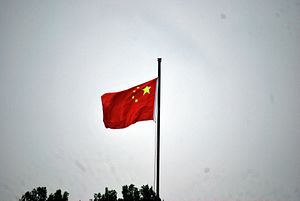Chinese President Xi Jinping and his U.S.counterpart Donald Trump are scheduled to meet on the sidelines of the G-20 summit in Buenos Aires, Argentina on Saturday. The upcoming meeting is seen by many analysts as a crucial (if not the last) chance for both countries — the top two largest economies in the world — to avoid a critical clash not only on trade, but in almost every domain.
However, increasing signs have shown that regardless of whether an agreement can be made by both leaders during the meeting, China and the United States have already come to “an inflection point in their relationship almost 50 years after the Nixon administration reached out to Beijing,” as John Pomfret — the former Washington Post bureau chief in Beijing and author of the book The Beautiful Country and the Middle Kingdom: America and China, 1776 to the Present — “sadly” put it.
On November 29 — right ahead of the Xi-Trump meeting — Stanford University’s Hoover Institution and the Center on U.S.-China Relations at the Asia Society released a new report, examining China’s efforts to influence U.S. institutions. The report, titled “Chinese Influence and American Interests: Promoting Constructive Vigilance,” was written by a Working Group comprised of 33 of the world’s top experts on China (including Pomfret).
In the report, the Working Group concluded that while “China’s authoritarian system takes advantage of the openness of American society to seek influence, it impedes legitimate efforts by American counterpart institutions to engage Chinese society on a reciprocal basis. ”
“Except for Russia, no other country’s efforts to influence American politics and society is as extensive and well-funded as China’s,” the Working Group stressed. “China’s influence activities have collectively helped throw the crucial relationship between the People’s Republic of China and the United States into a worrisome state of imbalance and antagonism. ”
Thus, these top China hands urged the United States to respond to China’s challenges actively and to “protect opportunities for American actors to operate in China.”
It’s particularly worth mentioning that these top scholars on China, unlike some hawkish U.S. politicians, have shown considerable prudence in the report. They clearly distinguished the Chinese Communist Party and the government apparatus from the Chinese people as a whole. They emphasized that “China is not Russia. It has not sought to interfere in a national election in the United States.” They tried not to demonize China, and expressed worry about “a new era of McCarthyism.” However, even with that caution in mind, the majority of the experts still believed that “in certain areas the only practical leverage [for the United States] resides in tit-for-tat retaliation [against China]. ”
The report showed that the traditionally moderate academia has more or less reached a general consensus that is in line with the U.S. government: Washington should firmly stand up against Beijing. In fact, the Trump administration has already been acting in this manner. According to a recent report by Reuters, for example, the U.S. government is considering new, tighter restrictions on Chinese students in the United States over growing espionage concerns.
The only dissenting opinion in the report came from Susan Shirk — a professor at the University of California, San Diego and former deputy assistant secretary of state during the Clinton administration. She said:
Although I have no problem with the factual research that has gone into specific sections of the report, I respectfully dissent from what I see as the report’s overall inflated assessment of the current threat of Chinese influence seeking on the United States… The cumulative effect of this expansive inventory that blurs together legitimate with illegitimate activities is to overstate the threat that China today poses to the American way of life. Especially during this moment in American political history, overstating the threat of subversion from China risks causing overreactions reminiscent of the Cold War with the Soviet Union, including an anti-Chinese version of the Red Scare that would put all ethnic Chinese under a cloud of suspicion. Right now, I believe the harm we could cause our society by our own overreactions actually is greater than that caused by Chinese influence seeking.













